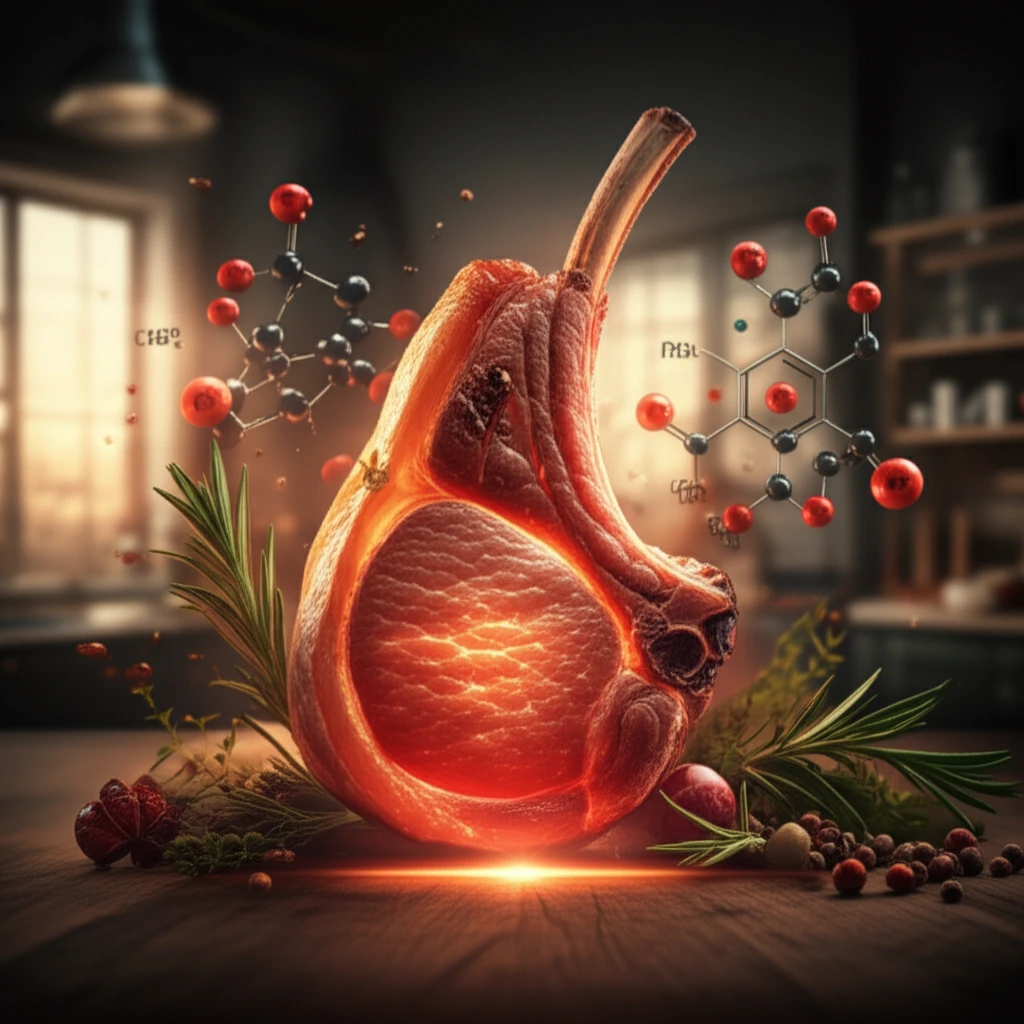
Unlock the Secret to Tender Pork: How a Simple Supplement Could Transform Your Dinner
"Discover how a dietary tweak could lead to juicier, more flavorful pork dishes, revolutionizing your cooking from the inside out."
Imagine biting into a perfectly cooked pork chop – tender, juicy, and bursting with flavor. Achieving this culinary dream often feels like a well-guarded secret. While factors like cooking time and temperature play a crucial role, the inherent quality of the meat itself is paramount. What if a simple dietary adjustment could significantly enhance the quality of the pork you buy?
Recent research, published in the Journal of the Science of Food and Agriculture, explores the impact of a specific dietary supplement, coated cysteamine hydrochloride, on pork quality. This innovative study reveals how this supplement can influence the color, tenderness, and overall palatability of pork, offering exciting possibilities for both consumers and the meat industry. Could this be the key to unlocking the perfect pork dish?
This article aims to break down the science behind this supplement and its effects, providing you with actionable insights to make informed choices. We'll explore how cysteamine hydrochloride works, the benefits it offers, and what this means for your next pork purchase. Get ready to discover a new way to enhance your meals and enjoy the best pork you've ever tasted.
The Science Behind Better Pork: What is Cysteamine Hydrochloride?

Cysteamine hydrochloride isn't a new concept; it is a metabolite in animals. In the context of meat production, it’s used in a coated form to enhance meat quality. The study focuses on how this supplement affects the meat's characteristics, aiming for a superior final product. This supplement acts as an antioxidant, helping to preserve the meat's color and prevent lipid oxidation, key elements in ensuring great taste and texture.
- Color Enhancement: Helps maintain the desirable red color of pork.
- Reduced Oxidation: Slows down the process that leads to spoilage.
- Improved Tenderness: Contributes to a more palatable eating experience.
- Enhanced Antioxidant Capacity: Boosts the meat's ability to resist degradation.
Enhancing the Future of Pork: A Path to Better Meals
The findings suggest that dietary supplementation with coated cysteamine hydrochloride could become a valuable tool for improving pork quality. As the industry continues to refine its practices, research like this highlights how strategic interventions can significantly influence the food we consume. For anyone who loves pork, the promise of more flavorful, tender, and longer-lasting meat is certainly something to look forward to. Embrace the potential of this supplement and look forward to enjoying pork that is consistently delicious.
